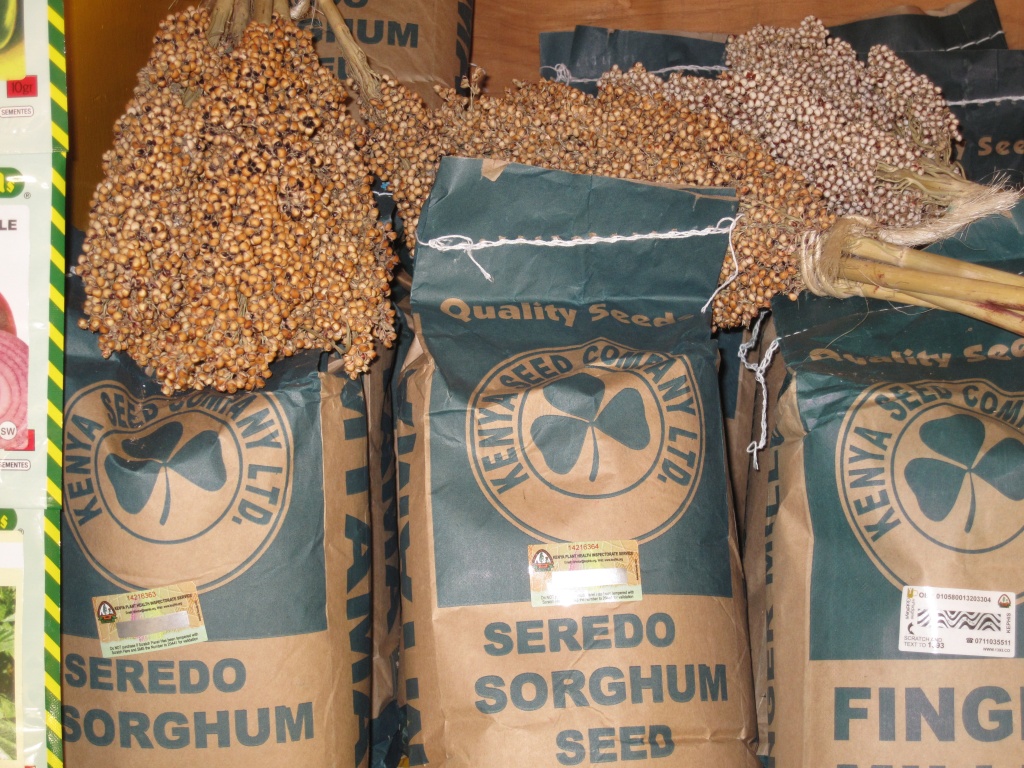Sorghum seeds. Photo: Oyugi Zablon
Kenya Agricultural & Livestock Research Organization (KALRO) researchers are coming up with indigenous crop varieties which are high yielding, tolerant to drought and rich in micronutrients like minerals and vitamins which are good for normal metabolism, growth and physical well-being.
Under a programme dubbed Arid and Semi-arid Lands (ASALs) Productivity, the experts are focused to improve the indigenous crop varieties to help regions which face hunger caused by long droughts and unpredicted rainfall.
“Our continuous surveys indicates that unavailability of high quality seeds and that non-existent of these seeds in many other areas other than some areas where on-farm trials were being conducted has been a major contributor to low yields in small-scale farms in ASALs,” said Ben Musyoki Research Technologist at KALRO’s Arid and Range Lands Research Institute during Nairobi International Trade Fair.
KALRO Katumani has therefore pre-released over 50 improved sorghum, finger-millet, cowpeas, pigeon peas, beans and green grams varieties.
READ ALSO: Sorghum emerges as crop of choice for dryland farmers
READ ALSO: Farmers stuck with old crops despite climate threat
READ ALSO: Weeds tell farmers the kind of soils they have and crops to grow on them
Under green grams there are Ndengu Tosha KAT 00301, Biashara KAT 00308, Karembo KAT 00309. These varieties takas 65-75 days to mature and has ability to yield up to between 1800-2100kg per hectare.
Beans varieties include Angaza, Nyota and Meta Meta which take 75-84 days, 65-70 days and 75-84 days respectively to mature. Angaza can give 2000kg per hectare, Nyota produces between 1400-2200kg per hectare and Meta Meta 2000kg per hectare.
Pigeon peas varieties are KAT PP 005, 006 and 008. Their maturity period ranges between 130-150 days with ratoon ability to produce not less than 1800kg per acre under proper agronomic practices. These is also Amaranth KAT 001 and 114 which take three months to mature and can give 500kg of produce per acre.
According to Musyoki these improved indigenous crop varieties are under certification by Kenya Plant Health Inspectorate Service (KEPHIS) and will soon be available for farmers. “Our seed are under approval and once the process is through, the seeds will be released to the market,” said Musyoki.

















Comments powered by CComment